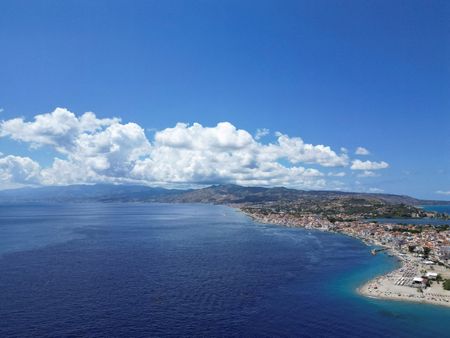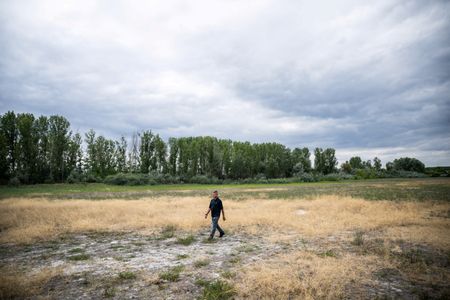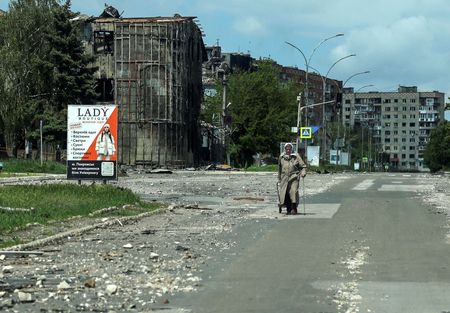By Angelo Amante
ROME (Reuters) -Italy’s Infrastructure Minister Matteo Salvini on Thursday vowed to press ahead with a bridge linking Sicily to the mainland but said he would answer Court of Auditors’ objections that have blocked the project, aiming to avoid an institutional clash.
Salvini spoke after a meeting called by conservative Prime Minister Giorgia Meloni to discuss the court’s refusal to sanction the project, which is earmarked to cost the state some 13.5 billion euros ($15.7 billion).
The court will detail its motivations within 30 days, but during a hearing on Wednesday it questioned whether the tender, originally carried out in 2005, was still valid, pointing to a surge in the projected costs and criticising the handling of procedures.
“We await the court’s remarks with complete calm and are confident we can answer them point by point, because we have complied with all regulations,” said Salvini, who has made the previously abandoned project a key government priority.
“If we need to return to the cabinet in early December and resubmit to the Court of Auditors all our reasons for proceeding, we will do so,” he added, saying he hoped for a new court hearing in January to enable work to start in February.
“Without any clash between state powers, we will provide all the information requested.”
Salvini toned down his remarks from an interview with daily Corriere della Sera earlier on Thursday, where he accused the court of bias against the government, suggesting the ruling coalition was ready for a clash with the judges.
Following his comments, the court issued a statement urging respect for its judges and said its decision addressed only the plan’s legal aspects, rejecting any suggestion of bias.
LEGAL RISKS TO IGNORING COURT VERDICT
The government can decide to sidestep the ruling and plough ahead regardless, ignoring the threat of possible legal action from the many opponents of the controversial venture.
Giuliano Fonderico, an administrative law professor at Ca’ Foscari University of Venice, said that the court’s reasoning would be key for any future lawsuits.
“Let us imagine that construction cannot be completed or prove to be much more expensive than expected. The fact that the court had already indicated these circumstances will make it more difficult for those who are responsible to say, ‘I am not to blame; I knew nothing about it’,” he told Reuters.
After learning the court decision late on Wednesday, Meloni had also denounced it as a political manoeuvre, made against the backdrop of tensions with the judiciary over a radical government shake-up of the country’s legal system that parliament approved on Thursday.
Critics say the planned 3.7-km (2.3-mile) suspension bridge between Messina and Calabria will be harmful to the environment, noting the area has suffered devastating earthquakes in the past.
The contract had been awarded to the Eurolink consortium following an international tender some 20 years ago. Led by Italy’s Webuild, it includes Spanish group Sacyr and Japan’s IHI.
The original cost was put at just 3.8 billion euros.
(Editing by Keith Weir and Crispian Balmer)











